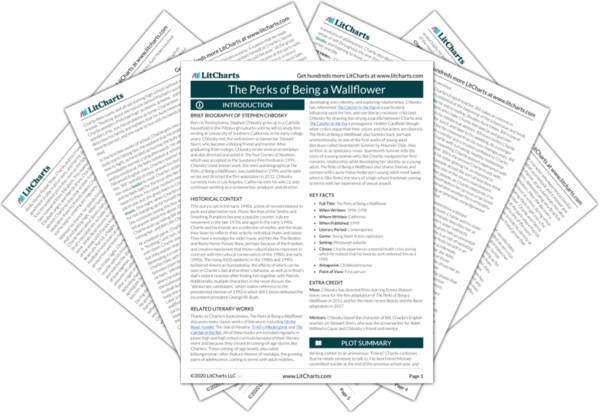Charlie’s family and friends visit him regularly, and his older
brother even reads Charlie’s essay on
Walden and tells him how much he liked it. His brother’s praise makes Charlie feel good. Charlie also talks about how
Patrick treats him the same in the hospital and cracks jokes to make him feel better. Patrick and
Sam promise to drive Charlie through the
tunnel once he’s released.
Bill and his girlfriend visit Charlie and invite him to their wedding, and Charlie writes that it’s exciting to have things to look forward to. When his siblings visit him, they talk about
Aunt Helen, and Charlie realizes there’s no point in blaming her for what she did to him because he would then have to blame the people who abused her, and so on. He writes that thinking that way “wasn’t going anywhere” and “wasn’t the point.”
